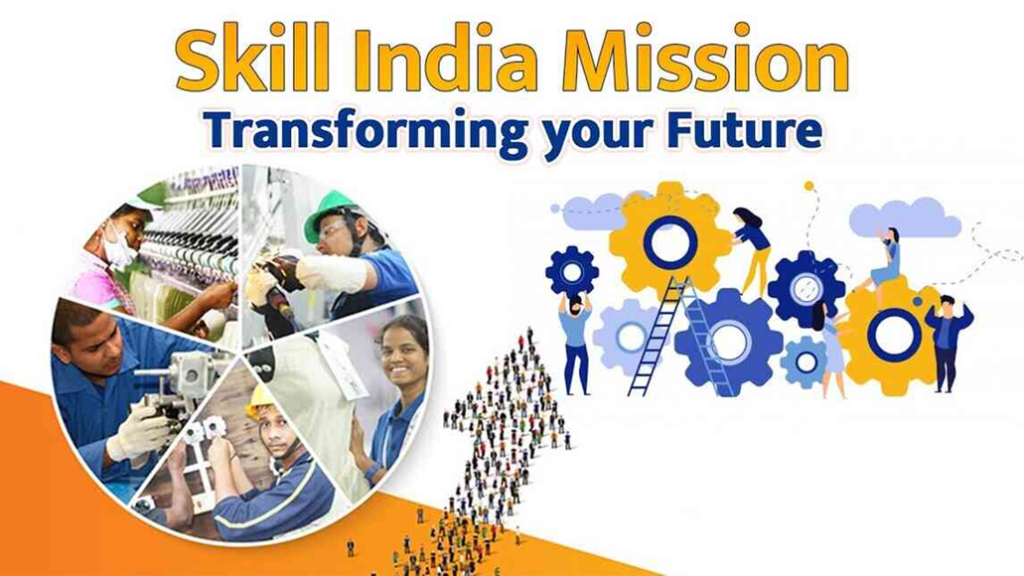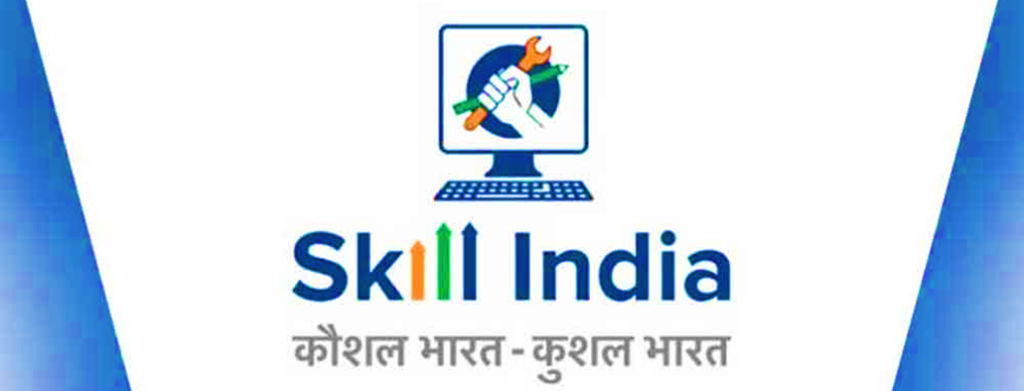Union Cabinet has approved the continuation and restructuring of the Skill India Programme until 2026. The restructuring brings together three key skilling initiatives under one umbrella—Pradhan Mantri Kaushal Vikas Yojana 4.0 (PMKVY 4.0), Pradhan Mantri National Apprenticeship Promotion Scheme (PM-NAPS) and Jan Shikshan Sansthan (JSS) scheme.
Cabinet Approves Rs 8,800 Crore | Skill India Mission
Why In News
- Union Cabinet has approved the continuation and restructuring of the Skill India Programme until 2026. The restructuring brings together three key skilling initiatives under one umbrella—Pradhan Mantri Kaushal Vikas Yojana 4.0 (PMKVY 4.0), Pradhan Mantri National Apprenticeship Promotion Scheme (PM-NAPS) and Jan Shikshan Sansthan (JSS) scheme.
Delhi Elections
- Skill India Programme will have a total outlay of Rs 8,800 crore over three years, from FY23 to FY26. “This approval underscores the government’s commitment to building a skilled, future-ready workforce by integrating demand-driven, technology-enabled, and industry-aligned training across the country,” the government statement said. The three flagship schemes, now integrated under the programme, are operated by the ministry of skill development & entrepreneurship and have collectively benefitted over 22.7 million individuals to date.
- To keep pace with evolving industry demands and advent of new-age technologies, the Rs 6,000 crore PMKVY 4.0 scheme will provide over 400 new courses on AI, 5G technology, cybersecurity, green hydrogen and drone technology among others.
- The scheme also puts strong emphasis on international mobility, ensuring Indian workers are equipped with globally recognised skills. Besides, the NAPS will have a total outlay of Rs 1,958 crore to support seamless transition from education to work, ensuring that apprentices gain industry-specific skills through real-world exposure.
- Under this, the government will provide 25 per cent of the stipend, up to Rs 1,500 per month, through direct benefit transfer (DBT) to an apprentice, between the age of 14 and 35 years.
- The NAPS encourages apprenticeship opportunities in prevailing manufacturing, including emerging fields such as AI, robotics, blockchain, green energy, and Industry 4.0 technologies.
- Meanwhile, the community-centric skilling initiative — Jan Shikshan Sansthan (JSS) — that places special emphasis on women, rural youth and economically disadvantaged groups between the age group of 15 and 45 years will have an outlay of Rs 858 crore.
Skill India Programme
- Skill India Programme is a Central Sector scheme designed to improve vocational education. It merges the Pradhan Mantri Kaushal Vikas Yojana 4.0 (PMKVY 4.0), the Pradhan Mantri National Apprenticeship Promotion Scheme (PM-NAPS), and the Jan Shikshan Sansthan (JSS) Scheme. This integration aims to streamline efforts and resources for better outcomes in skill development.
- Pradhan Mantri Kaushal Vikas Yojana 4.0 (PMKVY 4.0)
- PMKVY 4.0 focuses on short-term training and upskilling. It targets individuals aged 15 to 59. The scheme has introduced over 400 new courses in emerging technologies. Areas of focus include artificial intelligence, 5G technology, cybersecurity, and more. A national pool of assessors and trainers is being developed to ensure quality and standardisation. PMKVY has gone through large changes, including the integration of on-the-job training (OJT) within short-term skilling programmes to ensure that trainees gain real-world exposure and industry experience.
- Pradhan Mantri National Apprenticeship Promotion Scheme (PM-NAPS) PM-NAPS supports apprentices and industries in India. It provides financial incentives to businesses that hire apprentices. The government covers 25% of the stipend, up to ₹1,500 per month, through Direct Benefit Transfer. This scheme is aimed at individuals aged 14 to 35 and enhances the transition from education to employment.
- Jan Shikshan Sansthan (JSS) Scheme : The JSS focuses on community-based skill training. It aims to make vocational education accessible to women, rural youth, and economically disadvantaged groups. The programme offers flexible training sessions at low costs. Its goal is to promote self-employment and local entrepreneurship, especially among marginalised communities.
















